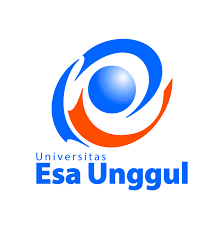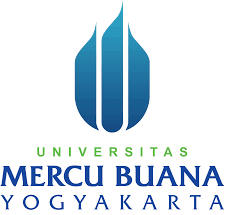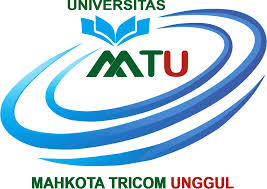The Effect of Financial Literacy, Performance Expectancy, Effort Expectancy, and Money Saving to Use Decision Financial Technology in the Millennial Generation in North Bekasi
DOI:
https://doi.org/10.55927/eajmr.v2i1.2170Keywords:
Financial Literacy, Performance Expectancy, Effort Expectancy, Money SavingAbstract
This study was used to The Effect of Financial Literacy, Performance Expectancy, Effort Expectancy, and Money Saving To Use Decision Financial Technology In The Millennial Generation in North Bekasi. This research is quantitative research where the object used is an employee in a use decision financial technology millennial generation in north Bekasi. This research was conducted using a non-probability sampling technique with a purposive sampling method. The number of samples used in this study was 152 respondents. The design used in this study is hypothesis testing using a structural equitation model (SEM) – SmartPLS 4.0. The results of this study provide an explanation that the financial literacy variable affects the use of decision financial technology, performance expectancy affects the use of decision financial technology, effort expectancy affects the use of decision financial technology, and money saving affects the use of decision financial technology.
References
Aljabaru, & Sari. (2020). Analisis penggunaan Mobile Payment Linkaja dengan Menggunakan Model Unified Of Acceptance And Use Of Technology (UTAUT). Management, 7(1), 1151–1163.
Arta, & Azizah. (2020). Pengaruh Perceived Usefulness, Perceived Ease Of Use dan E-Service Quality Terhadap Keputusan Menggunakan Fitur Go-Food dalam Aplikasi Gojek. Jurnal Ilmiah Mahasiswa Manajemen, Bisnis Dan Akuntansi (JIMMBA), 2(2), 291–303.
Hair, J. F., Black, W. C., Babin, B. J., & Anderson, R. E. (2019). Multivariate Data Analysis With Reading. https://doi.org/10.1080/00401706.1973.10489095
Halim, & Astuti. (2015). Financial Stressors, Financial Behavior, Risk Tolerance, Financial Solvency, Financial Knowledge, dan Kepuasan Finansial. Jurnal Finesta, 3(1), 19–23.
Handayani, M., & Rianto, M. R. (2021). Pengaruh Financial Knowledge , Pendapatan dan Social influence terhadap Minat Menggunakan Aplikasi Pembayaran Digital pada Generasi Milenial Islam di Kota Bekasi. Jurnal Ilmiah Ekonomi Islam, 7(03), 1858–1865.
Hasif, & Ahmad. (2019). Factors Affecting the Acceptance of Financial Technology among Asnaf for the Distribution of Zakat in Selangor- A Study Using UTAUT. 21(7), 35–46.
Ispriandina, & Sutisna. (2019). Memengaruhi Intensi Kontinuitas Penggunaan Mobile Wallet di Kota Bandung. 1046–1055.
Mahande. (2016). UTAUT Model : Suatu Pendekatan Evaluasi Penerimaan E-Learning pada Program Pascasarjana.
Mustaqim, & Aryadita. (2018). Analisis Faktor-Faktor yang Memengaruhi Niat Penggunaan E-Commerce XYZ Menggunakan Model UTAUT ( Unified Theory Acceptance and Use Of Technology ). Jurnal Pengembangan Teknologi Informasi Dan Ilmu Komputer, 2(7), 2584–2593.
Nurdin. (2019). Pengaruh Layanan Keuangan Berbasis Teknologi ( Fintech ) terhadap Literasi Keuangan Masyarakat Dago Atas , Bandung. Prosiding Manajemen, 5(1), 649–656.
Nursal, M. F., Komariah, N. S., & Rianto, M. R. (2022). Pengaruh Money Saving , Time Saving , Pendapatan dan Lingkungan Sosial terhadap Keputusan Menggunakan Aplikasi Online Food pada Masyarakat Muslim di Kota Bekasi. Jurnal Ilmiah Ekonomi Islam, 8(02), 1769–1775.
Rianto, M. R., Woestho, C., & Fikri, A. W. N. (2022). The Role of Mediating Innovation and Social Media : Market Orientation and Entrepreneurial Orientation on the Performance of MSME's Processed by Sea Products in Labuan Village, Banten. East Asian Journal of Multidisciplinary Research, 1(8), 1703–1714. https://doi.org/10.55927/eajmr.v1i8.1350
Sivathanu, B. (2019). Adoption of digital payment systems in the era of demonetization in India: An empirical study. Journal of Science and Technology Policy Management, 10(1), 143–171.
Sugiarti, E. N. (2019). Peran Fintech Dalam Meningkatkan Literasi Keuangan Pada Usaha Mikro Kecil Menengah di Malang. 8(4), 90–104.
Suwandi, & Azis. (2018). Faktor-Faktor yang Mempengaruhi Penggunaan E-Money pada Generasi Millenials. E-Proceeding of Management, 5(3), 3104–3111.
Xu, F., Huang, S., & Li, S. (2019). Time, money, or convenience: what determines Chinese consumers' continuance usage intention and behavior of using tourism mobile apps? International Journal of Culture, Tourism, and Hospitality Research, 13(3), 288–302.
Downloads
Published
How to Cite
Issue
Section
License
Copyright (c) 2023 Dody Kurniawan

This work is licensed under a Creative Commons Attribution 4.0 International License.











.png)






















